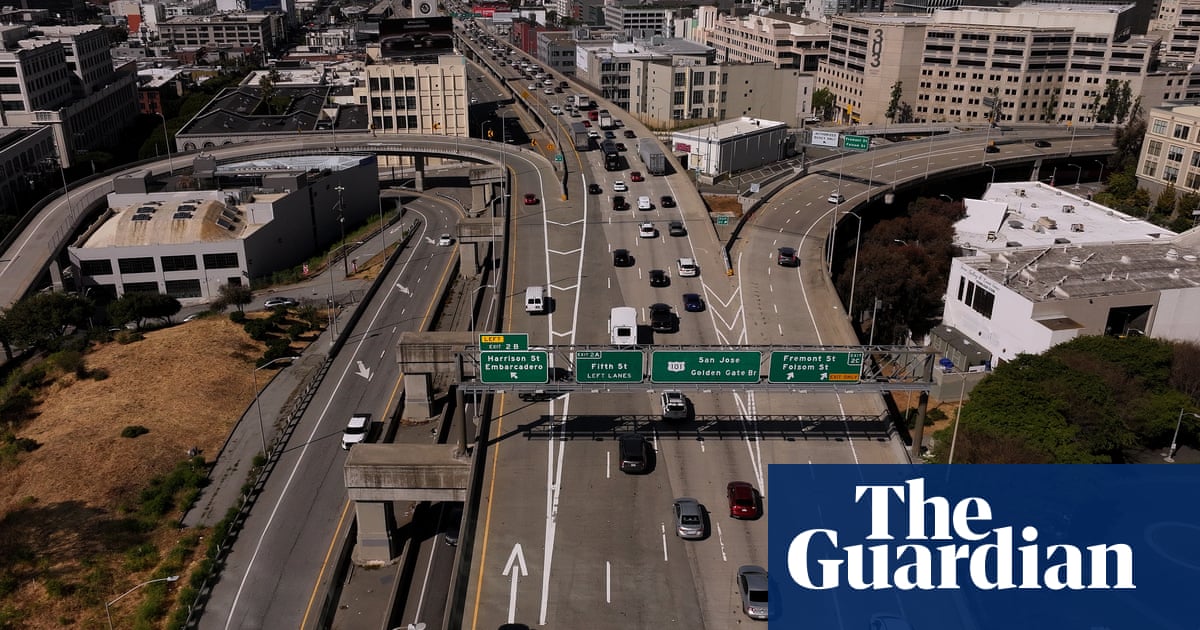California has long been one of the nation’s pre-eminent eco-warriors, enacting landmark environmental standards for cars and trucks that go much further than those mandated by the federal government. Vehicles across the country are cleaner, more efficient and electric in greater numbers because of it.
But that could all change if Donald Trump and his Republican allies manage to revoke the state’s ability to set its own, stricter emissions standards amid a White House crusade to combat climate-friendly policies.
The Environmental Protection Agency (EPA)sets and updatesits own federal standards for all states on smog and emissions from cars and trucks, which the Biden administration made even stricter last year, saying they will save American drivers thousands in fuel costs and maintenance over the life of a vehicle.
But for decades, California has beengranted the abilityto make those rules even stricter to help address some of theworst smog and air quality issuesin the nation, which are linked toa host of health effectsthat disproportionately affect people of color.
Lawmakers in the House of Representatives recently voted to reverse those waivers granted to California. And on Wednesday, the Republican Senate majority leader, John Thune, said the chamber would move forward with efforts to dismantle California’s stricter air quality rules using a mechanism known as the Congressional Review Act, which usually allows lawmakers to overturn actions by federal agencies with a simple majority vote. That power allows decisions under the CRA to avoid a filibuster from the minority party.
The plan has prompted fury from Democrats who call it a “nuclear” option, saying it would be an unprecedented, and illegal, use of the statute. The Government Accountability Office and the Senate parliamentarian have agreed, saying EPA waivers are not subject to the review law.
“This move will harm public health and deteriorate air quality for millions of children and people across the country,” said senators Alex Padilla, Sheldon Whitehouse and the Senate minority leader Chuck Schumer in a statement.
Kathy Harris, director of clean vehicles at the Natural Resources Defense Council, emphasized California’s ability to mandate strict emissions standards for cars, trucks and buses had existed for nearly 60 years, noting the state has been granted more than 75 waivers under Republican and Democratic presidents.
Among the waivers include rules to increase the share of electric vehicles each year among all new car and truck sales, as well as mandates that auto companies introduce progressively cleaner vehicles.
She described the waivers as a “quadruple win”, benefiting public health, air quality, drivers’ pockets and the economy as a whole.
“These waivers are not new or novel,” Harris said in an interview. “California has historically been innovators in systems to help produce cleaner air and stymying California’s ability is a direct attack on our ability to limit pollution and health harming pollutants in the air.”
She added revoking the waivers would immediately lead to an increase in pollution on the nation’s roadways.
More thana dozen statesfollow California’s lead on emissions standards, according to the California air resources board. The standards now cover nearly 40% of new light-duty vehicle registrations and more than a quarter of heavy-duty vehicles like trucks across the entire US.
Automakers have largely followed California’s emissions standards as well so they can continue to sell cars there, as the state equates to thefourth-largest economyon the planet.
California’s governor Gavin Newsom upped the ante in the nation’s environmental future in 2020, declaring his state would ban the sale of all new gas-powered vehicles by 2035. Eleven states have also joined California’s plan to ban the sale of new gasoline-powered cars by the 2035 deadline, a reality thathas spookedmajor car companies.
Joe Biden’s administrationapproved the plan at the end of his term. Trump, however – a vehement opponent to many of the nation’s climate efforts – has vowed to see them reversed.
“California has imposed the most ridiculous car regulations anywhere in the world, with mandates to move to all electric cars,” Trump said during his campaign last year. “I will terminate that.”
Newsom on Wednesday cast the battle as a nail in the coffin for the American car industry and decades of public health advancements.
“The United States Senate has a choice: cede American car-industry dominance to China and clog the lungs of our children, or follow decades of precedent and uphold the clean-air policies that Ronald Reagan and Richard Nixon fought so hard for,” he challenged Republicans in a statement. “Will you side with China or America?”
If the Senate does move forward with its plan to restrict California, the decision could have sweeping effects far beyond the state’s borders.
Harris said she recently pulled up pictures of what air quality looked like in cities around the country in the 1960s before the Clean Air Act, the seminal environmental law that regulates the nation’s air quality, was in effect. She described normal levels of smog in California as blanketing the statesimilar to the apocalyptic clouds of wildfire smokethat have descended during recent fire seasons.
The American Lung Association also found last month thatLos Angeles remained the country’s smoggiest cityfor the 25th time in 26 years of tracking, despite decades of improvements in air quality.
“I think we have forgotten about what our air used to look like,” Harris said. “We take it for granted because it’s a policy that’s been around for so long we don’t really recognize those direct benefits.”
“There is still a long way to go, we have not succeeded in fully cleaning up our air yet,” she added. “These types of policies help ensure we are moving in a positive direction.”
